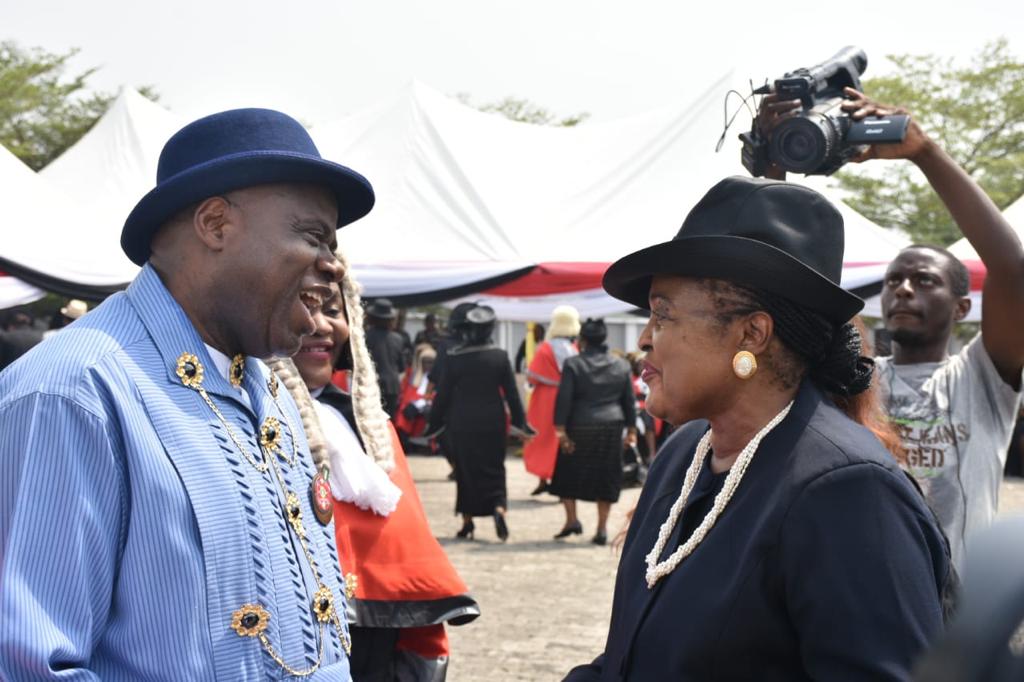Niger Delta
UNICEF Wants End To Violence Against Women, Children In Bayelsa

United Nations Children Education Fund (UNICEF), in partnership with the Swedish International Development Cooperation Agency (SIDA), and the Bayelsa State Government has recently concluded a two-day programme on violence against women and children in Bayelsa State.
The event tagged, “Engagement with key stakeholders for child protection, intervention in emergency in seven affected LGAs of Bayelsa”, had participants drawn from various child rights, child specialists and women groups who brainstormed on causes and measures to avert violence against women and children in the state.
Stating the rationale behind the programme, a child protection specialist from Unicef’s Enugu field office, Mr Victor Atuchukwu, noted that the Programme became imperative following the 2022 ravaging floods which displaced and exposed several women and children in the seven flood worst hit Local Government Areas of the state.
He described child protection risks in emergencies such as those occasioned by the 2022 floods as unintended injuries and death, displacement, sexual violence and abuse, family separation, child labour, emotional and psychological distress as well as physical and gender-based violence.
The Unicef child protection specialist charged stakeholders, especially community leadership to act as agents through which rights of children could be guaranteed and children protected from violence and exploitation, adding that children are future leaders who ought to be given immunity against vulnerability.
He said Children needed to be safe and their future secured even in emergencies.
Atuchukwu, who also enumerated some Unicef’s child protection responses in emergencies stated that the UN’s children fund would partner the state in the provision of mental health and psychosocial support, emergency case management for unaccompanied and separated children during emergencies in IDPs camps, provision of preventive and responsive child protection services and ensuring registration of births, as well as strengthen community-based child protection mechanisms, amongst others.
“Unicef would intervene in the rapid assessment of the impact of flooding on children across seven LGAs of Bayelsa state. We’d carry out capacity building training for seven LGAs/community social workers and service providers.
“Unicef would also carry out the identification and capacity strengthening for 231 child protection structures and services at community level family tracing and reunification of 200 children.
“We’d also identify and provide child protection services for 800 children, including girls. Unicef would provide a comprehensive psychosocial support services, including life skills education and positive parenting to 35, 000 children, adolescents and caregivers.
“We’d provide risk mitigation, prevention and response messaging and intervention to address gender-based violence (GBV) and sexual exploitation and abuse(PSEA) to 35,000 children, adolescents and caregivers”, Unicef said.
Meanwhile, intimating participants on expectations and rules of the programme, Director of Children Development Department, Bayelsa State Ministry of Women, Children Affairs, Empowerment and Social Development, Mr Panebi Jacob relived the ravaging impacts the 2022 floods had on the state.
He commended Unicef for the initiative, describing the state as having really been dealt with by the floods.
Jacob also noted that at the end of the Programme and other subsequent interventions in terms of handling emergency situations by Unicef in collaboration with the state, the issues raised, regarding exploitation, violence and gender-based inequalities against women and children would be checkmated to the barest minimum.
Highpoints of the event were goodwill messages by select Traditional rulers from the seven flood impacted LGAs of the state, including, Yenagoa, Ogbia, Nembe, Sagbama, Ekeremor, Southern Ijaw and Kolokuma/Opokuma local Government Areas, as well as other participants.
By: Ariwera Ibibo-Howells, Yenagoa
Niger Delta
Stakeholders In Delta Seek Stronger GBV Action, Women’s Leadership

Niger Delta
C’River Suspends Taskforce Activities Over Drivers’ Protest

Niger Delta
A’Ibom Assembly Urges More Private Investments In Agriculture

-

 News4 days ago
News4 days agoAmend Constitution To Accommodate State Police, Tinubu Tells Senators
-

 Politics4 days ago
Politics4 days agoSenate Urges Tinubu To Sack CAC Boss
-
Business5 days ago
Crisis Response: EU-project Delivers New Vet. Clinic To Katsina Govt.
-
Business5 days ago
President Tinubu Approves Extension Ban On Raw Shea Nut Export
-

 News4 days ago
News4 days agoDisu Takes Over As New IGP …Declares Total War On Corruption, Impunity
-
Business5 days ago
Fidelity Bank To Empower Women With Sustainable Entrepreneurship Skills, HAP2.0
-
Business5 days ago
President Tinubu Extends Raw Shea Nuts Export Ban To 2027
-
Sports4 days ago
NDG: Rivers Coach Appeal To NDDC In Talent Discovery

